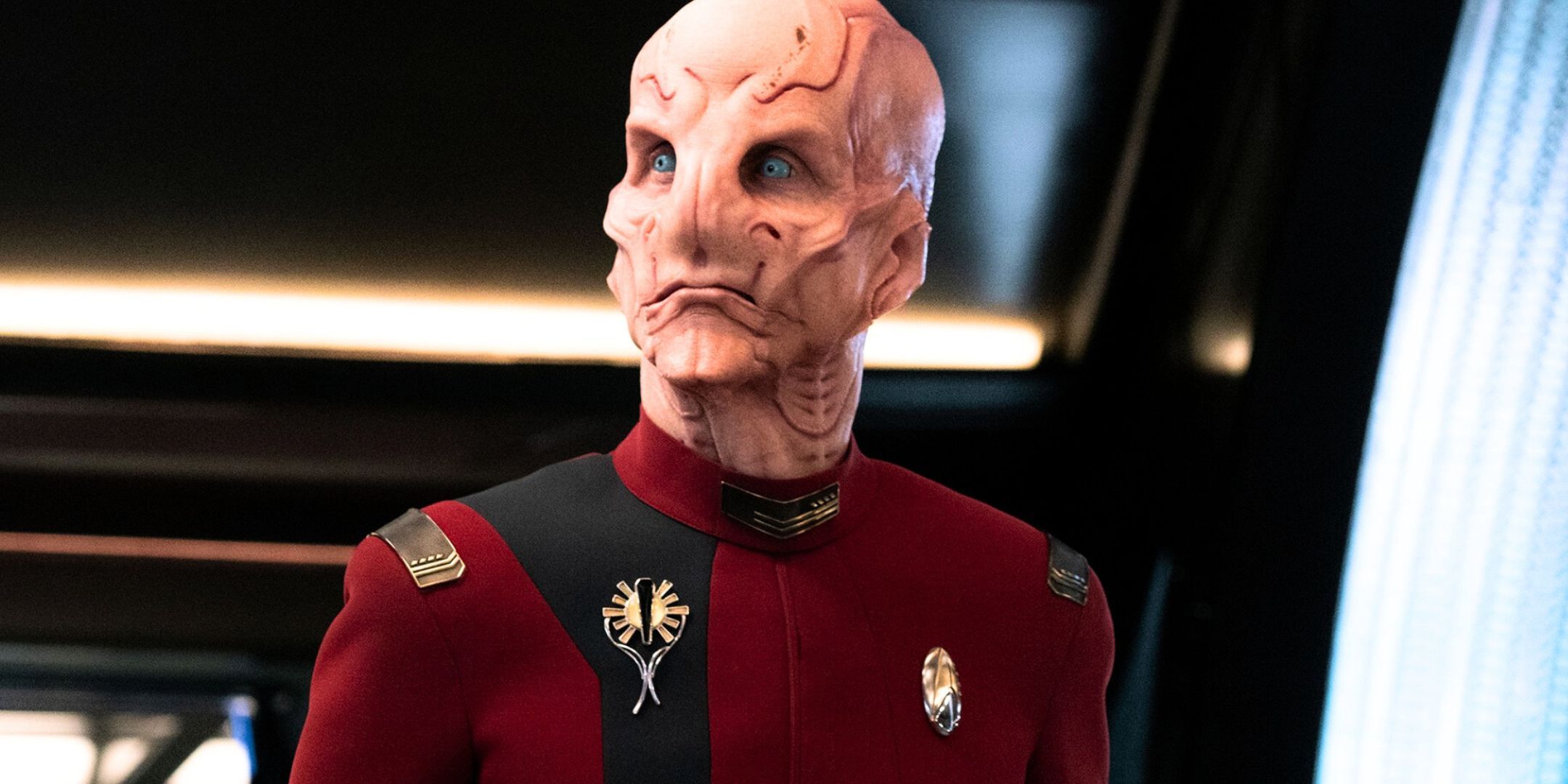Why Star Trek: Discovery's Spore Drive Wouldn't Have Helped Voyager
Initially set in the era between the end of Star Trek: Enterprise's divisive finale and Star Trek: The Original Series' first episode, Star Trek: Discovery made several compelling (but risky) additions to franchise canon. While Discovery made Star Trek better in a lot of ways, it also made contributions that were arguably a little too bold.
That said, I don't think the spore drive falls into the latter category. It's certainly a bit of a stretch to justify the retroactive invention of spore drive tech long before 24th-century shows like Star Trek: Voyager, but Discovery does just enough to make sure the entire scenario isn't completely nonsensical.
The USS Voyager Would Have Benefited The Most From Discovery's Spore Drive Technology
Captain Janeway Had To Find Other Ways To Shave Time Off Her Ship's Voyage Home
Every season of Star Trek: Voyager chronicles the show's titular ship's long and perilous journey through the Delta Quadrant in an attempt to return to Earth. Voyager's unique premise opened up countless avenues for Captain Janeway (Kate Mulgrew) and her crew to explore a region of space that was largely uncharted at the time.
When Voyager originally aired, Star Trek: Discovery was still decades away from even being conceived, so there was no possible way the writers could have folded in the spore drive to help Janeway's crew get home. That said, it now can't be ignored that the technology did canonically exist at the time, even if only retroactively.
If Star Trek: Voyager had been written today, it would have been possible to include a storyline that saw the crew unearth Discovery's classified tech. Doing so would mean Captain Janeway simply declaring a black alert and getting her ship home in the blink of an eye. Unfortunately, for various reasons, that didn't happen.
Why Star Trek: Discovery's Spore Drive Would Have Created A Problem For Voyager
Stamets Was The Only One Consistently Capable Of Navigating The Mycelial Network
When the USS Discovery jumped to the 32nd century, Starfleet suppressed all knowledge of the ship and its game-changing spore drive. It became intensely classified, which explains why tech is never mentioned in other shows. However, Starfleet would surely have made an exception when trying to get Voyager home.
Discovery was the only ship to ever have a working spore drive fitted, and even with the tech's inventor on board, Lt. Commander Paul Stamets (Anthony Rapp), a suitable replacement was never found for the requirement to use a tardigrade when traversing the mycelial network.
Stamets himself became the primary method of using the spore drive, but it required genetic engineering for him to be able to do so, and the process remained experimental and highly dangerous. So, even if Starfleet Command did share the blueprints for the spore drive hardware, Voyager would have lacked an ethical and safe way to use it.
It is possible that Jeri Ryan's Seven of Nine could have assisted in finding an alternate way to access the mycelial network without a tardigrade or tardigrade hybrid. Seven's use of Borg tech to upgrade some of Voyager's systems helped the ship perform at unexpected levels. That said, combining Borg tech with the spore drive could have been especially dangerous.
Star Trek: Discovery Explained Why Voyager Could Never Have A Spore Drive
The First Modern Star Trek Show Toyed With Canon, But Didn't Break It
Plus, the tech never even makes it off Discovery, keeping the ship unique in its ability to traverse the galaxy so quickly. Stamets never successfully replicated his achievement on any other vessel in either the 23rd or 32nd century. While the USS Glenn was fitted with a spore drive, its lone attempt to use it resulted in the ship's destruction.
So, the delicate and specific nature of Discovery's spore drive, paired with the immense risks and ethical concerns, all combine to account for the lack of technology on the USS Voyager and other Starfleet ships. Therefore, Star Trek: Discovery's coy writing means Star Trek: Voyager's storyline remains logical and intact.









